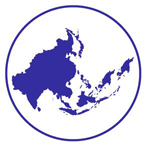The Networked Life of Zhang Fanglin 章芳琳: Temples, Opium, Spies, and Evenings with the Colonial Elite
Presentation is included in Panel 18: Colonial Power and Local Society in Modern East Asia
Abstract
This paper analyzes the life of Zhang Fanglin (1825-1893), a wealthy Singaporean philanthropist in the British colonial period, through the lens of overlaid networks that crossed borders of nation, language, race, and class. It brings together sources from stone inscriptions of temples, native place associations, and schools; Chinese and English language newspapers; and local gazetteers to reassemble the many networks that he participated in.
Although Zhang Fanglin has been mentioned in previous studies of colonial Singapore, there has yet to be a comprehensive study of his complex life. Here I will consider the connections between his many relations from the opium trade, development of Chinese schools, construction and refurbishing of temples, donations to disaster relief in China, translocal connections to his ancestral home in Fujian, and his association with the Qing government and British colonial officers that brought about many new developments in Singapore and elsewhere.
From this empirical study, Zhang Fanglin can be seen as an example of the complex identities one held in terms of race, nationality, native place, and class, and how these related to the rise of nationalism among the Chinese diaspora and anti-colonial movements in Southeast Asia. While recent studies have analyzed the rise of nationalism in Southeast Asia and the transnational networks of ethnic Chinese in the diaspora, the multilayered networks of Zhang Fanglin present an increasingly complicating picture of both issues.
The Networked Life of Zhang Fanglin 章芳琳: Temples, Opium, Spies, and Evenings with the Colonial Elite
RCC Small Ballroom
This paper analyzes the life of Zhang Fanglin (1825-1893), a wealthy Singaporean philanthropist in the British colonial period, through the lens of overlaid networks that crossed borders of nation, language, race, and class. It brings together sources from stone inscriptions of temples, native place associations, and schools; Chinese and English language newspapers; and local gazetteers to reassemble the many networks that he participated in.
Although Zhang Fanglin has been mentioned in previous studies of colonial Singapore, there has yet to be a comprehensive study of his complex life. Here I will consider the connections between his many relations from the opium trade, development of Chinese schools, construction and refurbishing of temples, donations to disaster relief in China, translocal connections to his ancestral home in Fujian, and his association with the Qing government and British colonial officers that brought about many new developments in Singapore and elsewhere.
From this empirical study, Zhang Fanglin can be seen as an example of the complex identities one held in terms of race, nationality, native place, and class, and how these related to the rise of nationalism among the Chinese diaspora and anti-colonial movements in Southeast Asia. While recent studies have analyzed the rise of nationalism in Southeast Asia and the transnational networks of ethnic Chinese in the diaspora, the multilayered networks of Zhang Fanglin present an increasingly complicating picture of both issues.
